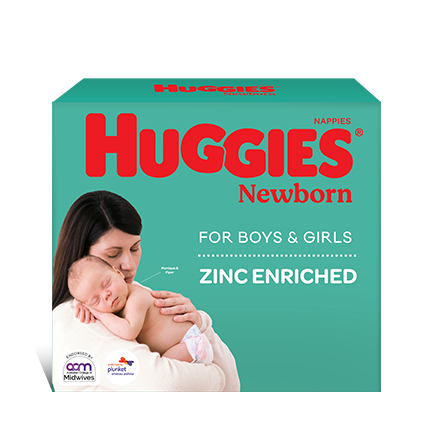Now is the perfect time to start thinking about your pregnancy diet
When you are pregnant, whatever you eat and drink will eventually find its way to your baby. There are certain vitamins and minerals that will make a difference for your baby's growth and development, and steering clear of potentially harmful foods will be important.
We've put together some helpful information on pregnancy eating, including what to eat, foods to avoid, recipes and more. Let us know if you have any useful pregnancy diet advice by signing in and adding your tips.

Chicken & Burghul Salad

Chicken and Sweet Corn Soup

Sesame Chicken Kebabs

Tropical Chicken Salad

Spicy Thai Chicken Cucumber Cups

Baked eggs with spinach and soldiers

Mexican Style Shepherds Pie

Chicken & Broccolini Laksa

Barbecued steak with a potato & asparagus salad

Char-grilled rump steak, potato salad and fresh coriander yogurt

Steak with avocado salsa and oregano tomatoes

Citrus marinated roast lamb and vegetables

Warm lamb salad with potatoes and capsicum

Cookies and cream cheesecake

Hearty Pumpkin & Lentil Soup
Pregnancy eating
There will be some important things to keep in mind when you are pregnant.
As a basic rule, fresh is best. Eating more fruit and vegetables will be one of the best ways to increase your intake of vitamins and minerals.
What to eat during pregnancy
Aim to eat healthy, unprocessed foods as often as you can, particularly lots of vegetables. Some key vitamins and nutrients that are essential for you and your baby include:
- Vitamins A, B, C, D and E
- Calcium
- Folic acid
- Omega 3
- Protein
- Iron
- Zinc
- Iodine
For more on what to eat during pregnancy, see our pregnancy nutrition and foods during pregnancy information.
Foods to avoid during pregnancy
There are a few types of foods to avoid during pregnancy as they could potentially cause problems:
- Foods that may contain the bacterium Listeria: soft cheeses, uncooked deli style meats, salads, sushi and unpasteurised milk and milk products.
- Foods high in mercury: raw fish and predatory fish that are high in mercury should be avoided. These include shark, swordfish and barramundi. Good alternatives are salmon, shellfish and canned tuna which are relatively low in mercury.
- Alcohol and caffeine should be avoided.
Diet and morning sickness
- Sips of water, cups of weak tea, fruit smoothies, cereal with low fat milk and even flat lemonade are good fluid options.
- Keep a container of crackers and a glass of water on your bedside table. In the mornings, before you stand up, make sure you have something in your stomach other than your digestive enzymes.
- Don t cook until you feel better. The sight and smell of certain foods can simply be too much for many pregnant women.
- Have a glass of milk and something light to eat just before you go to sleep at night.
- Avoid very spicy, fatty or sweet foods. Bland, easy to digest foods such as rice, pasta, noodles, sandwiches, fruit and toast are all good alternatives.
- Avoid heavy, large meals and instead, have smaller, more frequent snacks.
General dietary guidelines during pregnancy
- Don t skip meals. Aim for 5-6 small moderate sized meals every day which don t leave you feeling too full.
- Eat breakfast. It will help to restore your body's blood sugar levels to a healthy range after fasting for so many hours.
- Don t subscribe to diets that eliminate toxins from your body. Unless you have problems with your liver and/or kidney function, you are unlikely to have any problems. If in doubt, check with your maternity care provider or doctor.
- Don t limit the range or variety of the foods in your pregnancy diet. Your baby will taste the flavours of the foods you eat as it swallows the amniotic fluid. This will prime their taste buds so that when they are old enough for solid food, around 6 months of age, they will be more receptive to a greater range of tastes.
- Include calcium in your breakfast. Milk, yoghurt, milky tea or coffee, or cheese on toast will help to correct the overnight deficit of calcium in your bones. Bones need regular deposits of calcium and vitamin D to stay strong.
- Keep snacks and nibbles on hand. In the first trimester when nausea and vomiting is common, eating something can make all the difference to how you feel.
- Give in to cravings if you're having them. As long as they're not for inedible foods (Pica) there is often a biological reason for pregnancy cravings.
- Give up alcohol. There is no proven, safe intake level for pregnant women. The only way to ensure you're not having too much is to have none. Rediscover fresh fruit juices, soda water with a squeeze of lime or lemon juice, or just plain tap water. The added fluoride will make its way to your baby's jaw where their teeth and their enamel coating will be forming.
- Buy iodised salt when you shop. Pregnant women need this for their own healthy thyroid function. Importantly, their baby needs Iodine to boost their IQ. Seafood, iodine fortified bread, green leafy vegetables and eggs are other good sources.
- Eating at buffets or salad bars can be risky. Only eat foods that you are confident have not been sitting out for too long
- Read food labels. The general rule is that the greatest concentration of a food component is placed first on the ingredient list. If you don t recognise or can't pronounce the word, chances are it is not going to be very good for you or your baby.
- Eat a wide variety of fresh fruits and vegetables, which will help to support your own gut biota. Evidence is clear that a mother's healthy gut diet will help her growing baby to as well.
Pregnancy complications and diet
Health problems such as gestational diabetes, iodine deficiency, anaemia, preeclampsia, high blood pressure and hyperemesis gravidarum are just a few common issues pregnant mums-to-be can experience.
Occasionally what you're eating may play a large part in feeling better and easing or managing symptoms visit our pregnancy complications page for more information.
Last Published* May, 2024
*Please note that the published date may not be the same as the date that the content was created and that information above may have changed since.



















